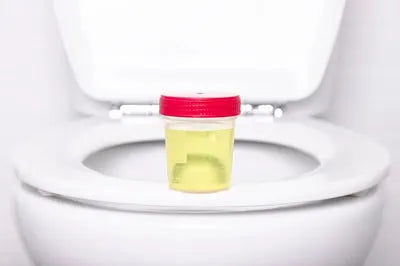Incontinence is the involuntary loss of bladder or bowel control. This is common among adults of all ages but is more prominent in elderly people. Caring for adults with incontinence is a difficult task. It takes a toll on the caregiver, especially if you don't have strategies in place.
There are some things that you, as a caregiver, should and shouldn't do. We will cover those tips for elderly care in this article. We will provide you with the best resources on how to take care of elderly at home so your job can become a bit easier.
Importance of Elderly Care
As people age, they may experience a decline in mobility, cognitive function, and overall health. They might no longer have the strength to carry out daily tasks. They need your help in various aspects.
With old age, problems like incontinence, difficulty walking, and weakened hearing start to rise. This is the time to get proper urinary incontinence treatment for elderly. As a caregiver, it is your responsibility that these loved ones don't feel like a burden or embarrassed about your situation.
It gets tough, but you need to stay strong. Do the right thing. It often gets frustrating to decide what to do and what not to do. So, check out the do’s and don'ts list in the next sections.
Top 5 Suggestions on How to Take Care of Elderly at Home?
- To take care of the elderly at home, you must ensure your house has all the necessary amenities. Instal grab bars and railings in places like washrooms and bedrooms. This will help the elderly walk and sit with ease.
- Always keep their medicines handy and the contact details of their doctor accessible.
- Try to serve them home-cooked meals for maximum nutrition.
- Listen to their needs and try to adapt them into your routine.
- Don't leave the elderly alone for extended periods of time, as they might need your assistance to use the washroom, drink water, take medicines, etc.
Do's for Caregivers Taking Care of Adults with Incontinence
Here's a list of things to do for urinary incontinence treatment for elderly:
- Establish a Routine: Regular bathroom breaks can reduce unwanted accidents. So, create a consistent schedule for toileting.
- Provide Adequate Hygiene: Maintain good hygiene by proper cleansing after accidents or toileting. Use gentle wipes or washcloths to clean the genital area. Apply barrier creams to prevent skin irritation.
- Choose the Right Incontinence Products: Select the appropriate incontinence products, such as diapers, pads, briefs, or underpads like Friends Premium Underpads.
- Promote Physical Activity: Engage them in regular physical activity to improve muscle tone and bladder control. Simple walking in the house can do.
- Foster Open Communication: Create a supportive environment where your loved one feels comfortable discussing their incontinence concerns.
For urinary incontinence treatment for elderly male, try to keep a male caregiver because they might not feel comfortable with women. The same applies to the treatment for urinary incontinence in elderly female. Women can better cater to women's needs when it comes to caregiving.
Don'ts for Caregivers Taking Care of Adults with Incontinence
- Don't Ignore Skin Irritation: Moisture from incontinence can cause skin irritation or sores. Don’t ignore redness or irritation. Address them with appropriate skincare measures.
- Don’t Rush or Pressure: Rushing them to use the bathroom or pressuring them to control their bladder can cause stress and anxiety. Be patient and supportive always.
- Don’t Ignore Diet: Certain food items, like caffeine, alcohol, or spicy foods, can irritate the bladder. Be mindful that you don’t include these in their diet.
- Don’t Neglect Self-Care: Caregiving can be physically and emotionally demanding. So, it's important to prioritise self-care. Take breaks when needed to avoid burnout.
Resources and Support for Elderly Care at Home
Elderly care at home is a challenging task. You need all the support you can get to care for their specific needs. At the same time, you need support to look after your well-being. If you are not well, who is going to take care of them? To deal with all this, there are a number of resources available.
Organisations like the National Association for Continence (NAFC) provide educational resources, support groups, and a helpline for urinary incontinence treatment for elderly. While others, like the Family Caregiver Alliance (FCA) and Area Agencies on Aging (AAA), supply resources for elderly care in general.
You should consider joining support groups or online forums that can provide valuable emotional support, practical advice, and a sense of community with others facing similar caregiving challenges.
Conclusion
For treatment for urinary incontinence in elderly, you need to express empathy, patience, and a proactive mindset. It can be a challenging part of elderly care, but with proper education, planning, and support, you can effectively manage it. Remember to use available resources and seek support when needed. By working together and implementing these tips, you can ensure a comfortable living environment.
FAQs
How can I make the person I'm caring for feel more comfortable about incontinence?
Show empathy in your actions and words. Be patient and understand them. Respect their boundaries while doing what's necessary. Normalise talking about their issues openly without any shame or guilt.
What are some effective ways to manage incontinence at night?
Ensure easy bathroom access, limit fluids before bed, and use absorbent bedding or protective pads for managing nighttime incontinence effectively.
What are some helpful communication tips for discussing incontinence?
Approach the topic with sensitivity, use non-judgmental language, and involve the individual in decision-making about their incontinence care to facilitate open communication.
How often should incontinence products be changed?
Incontinence products should be changed every 4 to 6 hours. Also, make it a habit to change before bedtime and in the morning after waking up.
What resources are available for caregivers of adults with incontinence?
The following are the resources available for caregivers of adults with incontinence:
















